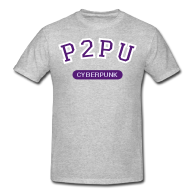
In the last twenty years, open source technology has revolutionized our digital lives. You may even recognize that open web servers (Apache), open web browsers (Firefox), open office suites (OpenOffice.org), open course management systems (Moodle), open mobile applications (Android), open encyclopedias (Wikipedia), and open textbooks (Flat World Knowledge) are part of this revolution. Did you know that Google Maps is updated by volunteer cartographers?
I truly believe that the university we know will change radically in the next 10 years and will not exist in a form we are familiar with in 50 years. I'm not sure how long it will take for free and open online universities to not only exist but to be accepted by employers, but it's coming.
From the blog at College Open Textbooks, I learned about Einstein University. It may not be what University 2.0 or 3.0 will look like, but it is part of the change. It has no set schedule and volunteer professors who are not assigned to particular courses. All they have to do to maintain volunteer faculty status is to earn a certain number of points each quarter. They can earn these points by editing an open textbook, answering a student’s question, uploading a seminar or lecture, or submitting a test question. When and how volunteer professors decide to earn their points is totally up to them.
Instead of charging students tuition, Einstein University funds itself through ad revenue. If that seems impractical, look at Wikipedia (which is built on the same software) is one of the most visited websites and has only 35 employees. That is a 1:8,000,000 employee:user ratio - but it does have 90,000 volunteers.
Einstein University’s mission is to take OER to the next level by allowing individuals an opportunity to use these resources to earn college credit. The idea behind Einstein University is simple: instead of a company creating the course material, all of its content is created collaboratively, and instead of paid professors facilitating the courses, all of its faculty members are volunteers.
Einstein University is also a way for professors to volunteer and offers a place to create their open content.
Its interactive approach to open textbooks with each textbook having its own section for a chat room, discussion board, news, journals, seminars, lectures, papers, research groups, data and web resources.
The university also doubles as an academic social network where students and professors can share ideas, collaborate on research, and read each other’s papers.
Einstein University does have a plan for accreditation and hopes to eventually offer undergraduate and graduate degrees online for free. The immediate plan is to offer a 2-year Associate Arts degree in 25 different languages and apply for accreditation in some of the main countries that speak those languages. If successful, this would make higher education free for millions of people in the developing world who lack access to it. At the moment the university has minimal content, but over the next year it hopes volunteer professors will begin to add it.


 What have you always wanted to learn about and never got around to taking a course in?
What have you always wanted to learn about and never got around to taking a course in?